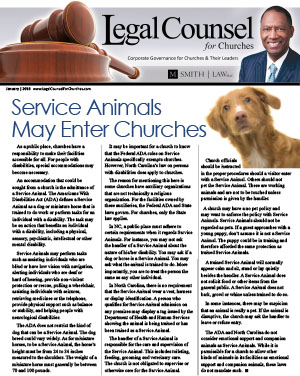Recently, there have been highly publicized accusations of negative conduct against famous people. In some cases, there were accusations of illegal, unethical and/or immoral behavior. The results left a stain on the companies’ reputations associated with these individuals.
Church leaders should accept that no organization is immune to allegations of negative conduct. The problem may arise from a scandal that involves a church official or member of the clergy. The challenge could come from a claim against the church itself. In any event, church officials may someday face the ordeal of dealing with a PR fall out from a publicized scandal.
I have observed the various corporate responses to public relations problems. The way an organization responds to a sensitive incident can spiral into a larger corporate governance nightmare. It is imperative that church leaders be prepared to address these kinds of situation.
The church should be careful how it shares information about any new dispute. In some instances, the issue may become a legal matter. If this happens, the church may want to preserve its attorney-client privilege to confidential conversations. For this reason, it may be a good idea to consult your lawyer at the beginning of an issue to ensure all defenses are preserved.
Churches should have an action plan in place should a public relations issue come about. The plan should identify who is authorized to speak on behalf of the church. This should be someone trained in media relations. Working with members of the press is more effective if the spokesperson is prepared and experienced in such matters.
The church should consider having the talking points for different kinds of incidents prepared in advance. In the heat of a potential PR disaster, there will be little time to form a plan. The message to the congregation, stakeholders and the public should be rehearsed beforehand. It is important to only recite facts that may be freely given without legal jeopardy.
The governance implications for church leaders is two-fold. First, churches should have policies in place to help avoid the risk of bad conduct. Staff and volunteers should be trained on prudent procedures to lessen the chances of wrongful behavior. Training for sexual harassment, dual control of assets and safety protocols should be included in the training curriculum. The church should also review its processes to reduce its exposure.
Secondly, church leaders must give an effective response to an incident. The fiduciary duty of care for leaders compel reasonable action. If it is reasonable to take a particular action, the failure to do so with care could subject the church and its officials to liability.
Some organizations’ leaders have come under fire for failing to act appropriately when a scandal arose. Action does not necessarily mean the same course of direction in all situations. Church leaders should undergo an effective investigation to uncover the facts. The action taken should be what is necessary to remedy the situation.
Church leaders should understand that a public relations scandal can happen at any time. Efforts taken today to avoid a problem is the best prevention. Having a contingency plan in place that considers all legal options is the next best course of action.

